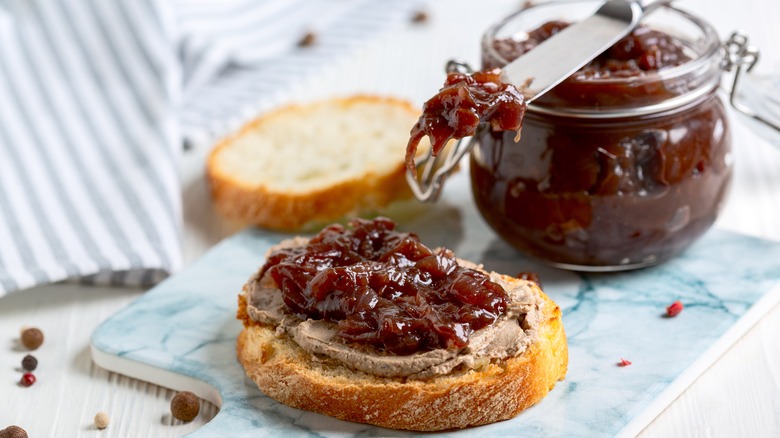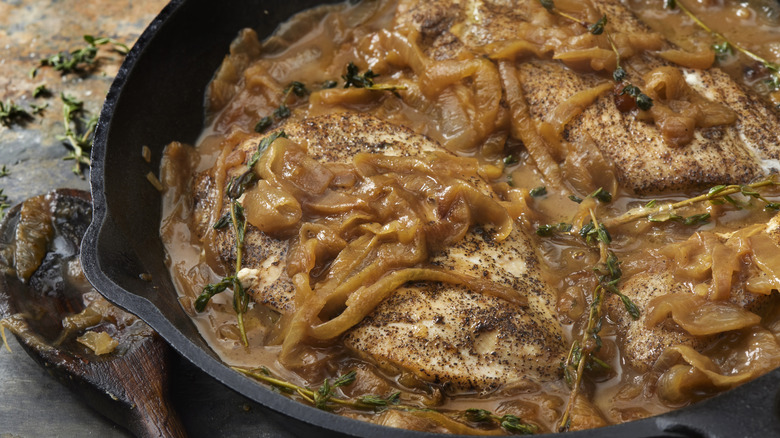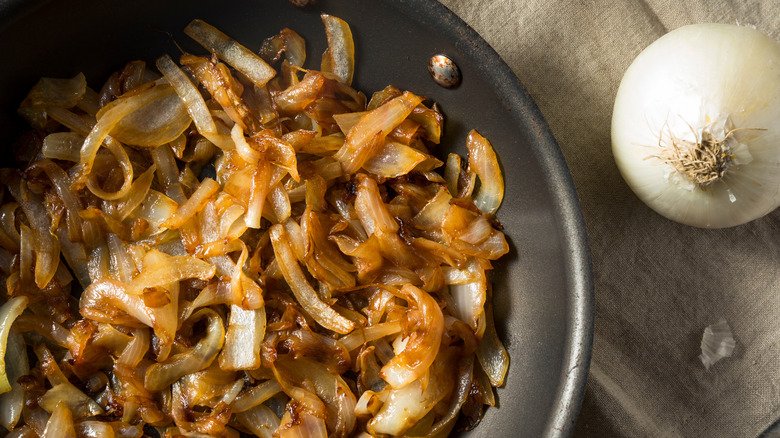The Salt Mistake That Can Ruin A Batch Of Caramelized Onions
There is nothing more packed with sweet and savory goodness than a batch of caramelized onions. Whether you're making a simple French onion soup, a vegetable galette, or a flavorful masala, taking the time to caramelize onions is well worth it to achieve that final flavor.
And it does take time. Throw out any recipe that tells you to take a quick ten minutes to caramelize your onions. If your onions turn brown in that amount of time, they've burned, not caramelized. It takes at least 45 minutes, likely closer to an hour, to really do this right, which is why it's important to know how to caramelize onions correctly, so you don't waste all that time for nothing.
The first thing you want to keep in mind when caramelizing onions is salt. You don't want to add it off the bat, because of the way that salt works with the moisture in the onions.
When to salt caramelized onions
There are many contradictory opinions on when you should salt your onions during the caramelization process. While some claim that adding salt at the beginning allows the onions to cook more evenly, it will most likely make the entire process take much longer. Adding salt causes the onions to release moisture, in effect causing them to steam in their own liquids. As your goal is to have the moisture in the onions release gradually to produce a Maillard reaction and cause the sugars in the onion to transform, you don't want to start with wet, droopy onions.
Salting at the end also allows you to better adjust your seasoning. As the onions get far sweeter farther along in the process, you may find yourself adding more salt than you would to onions that were merely sauteed.
Some home cooks also suggest adding a pinch of sugar to your caramelized onions to speed up the caramelization, but if you trust the process, you'll find that your onions will get perfectly sweet on their own.
Other caramelization tips
You can caramelize any type of onion: Vidalia, Spanish, red onions, even the onion's allium cousin, the shallot. But always start with more onions than you think you'll need because they can shrink to next to nothing before you realize it. Cut your onions in half, then chop them into long, thin slices. (The thinner, the better — thicker slices will take longer to caramelize.)
You want to use the largest skillet you have, to prevent crowding the onions. This will allow more water to evaporate. If possible, use a shallow but thick-bottomed pan like a Le Creuset for even heat distribution, to reduce the possibility of burning. But you never want to use a pot with high sides, which will trap the moisture. If you can, spread them in a single layer to speed up the process. Then simply cook them in a small amount of oil or butter over medium-low heat, stirring occasionally, until they achieve jammy perfection.



